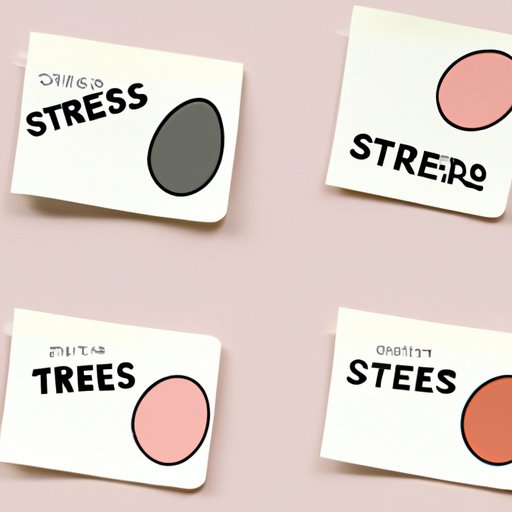
Introduction
Stress is a part of everyday life, but when it starts to manifest itself on our skin, it can become a real burden. Stress rash, also known as stress hives or urticaria, is a physical response to emotional or psychological stress that can lead to itchy, red welts on the skin. This condition affects people of all ages and is becoming increasingly common. In this article, we’ll discuss how to treat stress rash, its causes, and preventive measures.
Understanding the causes of stress rash and effective ways to prevent it
Stress is a condition that exerts visible and invisible harm on the body, including the skin. Triggers that might cause stress rashes include anxiety, emotional trauma, environmental factors, and physical exertion. The body’s response to stress triggers the release of histamine, which causes inflammation in the skin. To prevent stress rash, identifying and managing stressful triggers is essential. Here are some tips to help:
Avoid Triggering Factors
Identify stressors that trigger hives and avoid them. For example, if change of weather leads to the development of rashes, wear protective clothing, or take antihistamines before going out. Migrating to another destination with a more moderate climate is also an option.
Get Enough Quality Sleep
A restful sleep is vital to your overall well-being, including your skin. Lack of sleep or poor quality sleep can exacerbate stress rash symptoms. Try to have uninterrupted sleep and aim for at least 7-9 hours a night. Meditation, stretching exercises, or taking a warm bath before bedtime can help.
Reduce Stress Levels
Reducing stressful activities and responsibilities can decrease the intensity of stress rash symptoms. Engage in stress-relieving activities such as spending time with friends, engaging in hobbies, or taking up yoga or meditation.
Topical treatments and remedies for fast relief of stress rash symptoms
When stress rash symptoms flare up, various treatments and remedies can provide relief. Here are some effective topical solutions:
Emollients
An emollient is a moisturizing cream or ointment that can help soothe the skin, relieve itching, and reduce inflammation. It is also a great way to prevent stress rash from flaring up. A dermatologist may recommend a specific emollient if the rash is severe.
Cool Compresses
Applying a cool compress to the rash-affected area can relieve itchiness and inflammation. Take a washcloth and soak it in cool water or an astringent solution. You can also wrap ice cubes in a cloth and use this on the rash. Hold the compress against the skin for 15 minutes, at least thrice a day.
Relax
Stress rash can sometimes get worse if you keep checking it intermittently. Instead, try to take a break, relax and give yourself some downtime. Massage the area surrounding the rash, or take a walk around the block to alleviate tension.
Managing stress levels through lifestyle changes and self-care
Self-care is essential for overall well-being, including the skin. Here’s how to reduce stress levels:
Engage in Regular Exercise
A daily workout, walk, or jog can help release endorphins, which reduce stress hormones and promote relaxation. Aerobic exercises that help you get your heart rate up are ideal for this purpose.
Eating a Balanced Diet
Eating foods that are rich in nutrients, vitamins, and antioxidants can help your skin and body heal. Examples include fresh fruits and vegetables, lean protein, fish, nuts, and whole grains.
Breathing Exercises
Performing deep breathing exercises or practices such as Pranayama or Qigong can aid in stress reduction. Breathing deeply and steadily can help calm the mind and body, reducing stress levels. It’s best to do this when you’re feeling calm and relaxed, but you can also practice it during a stress rash flare-up.
Treating underlying medical conditions that may contribute to stress rash
Medical conditions like hypothyroidism, lupus, and HIV can also cause stress rash. However, the skin condition cleared up once the underlying medical conditions got treated. Here are some treatment options to consider:
Taking Medication
Prescription medication can help alleviate stress rash symptoms, especially if they have an underlying medical condition. Antihistamines and corticosteroids are commonly prescribed for stress rash.
Intravenous Immunoglobulin
Intravenous immunoglobulin (IVIG) is a medical treatment that works by helping the body fight off autoimmune diseases. Once the treatment commences, the symptoms of stress rash can quickly disappear.
Immune Globulin
Immune globulin (IG) is an ideal remedy for people who experience stress rash as a result of autoimmunity. This therapy works by delivering antibodies that help fight disease and infection, effectively reducing rash symptoms.
Psychological counseling and other professional treatments for chronic stress
When stress rash becomes chronic, professional treatments, such as psychological counseling, may be necessary to address the issue and prevent it from worsening. Here are some potential treatment options:
Cognitive-Behavioral Therapy (CBT)
CBT is a type of therapy designed explicitly to treat various mental health problems, stress and anxiety included. It actively addresses negative thoughts and behaviors, replacing them with more positive ones.
Mindfulness-Based Stress Reduction (MBSR)
MBSR aims to help people identify, experience, and handle stressful thoughts and feelings through mindfulness mediations and other exercises. MBSR is a practical approach to managing chronic stress and stress Rash.
Conclusion
Stress rash can be a challenging condition to deal with, but it’s possible to manage the symptoms through preventive measures and effective treatments. By following the suggestions offered above, you can reduce your stress, identify triggers, and make informed decisions about treatment options for managing your stress rash. Remember, it’s crucial to stay calm, confident, and optimistic, even when dealing with the most challenging situations.




